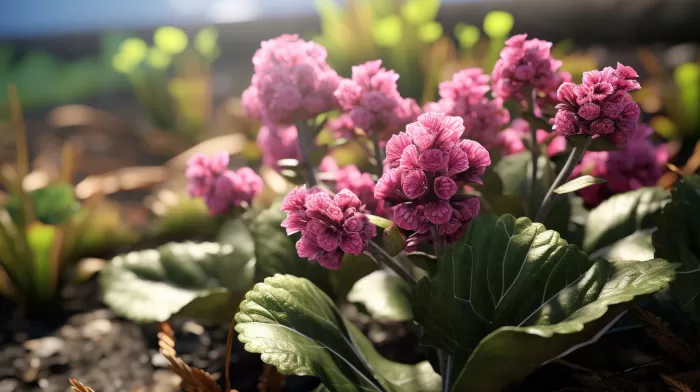Are you one of the 29.5 million Americans struggling with migraine headaches? If so, you’re not alone. The pain and debilitation of migraines affect many people’s daily lives. But what if you could prevent migraine attacks or reduce their severity without resorting to prescription or over-the-counter medications? Here’s some good news: the American Academy of Neurology and the American Headache Society have released new guidelines that recommend a natural, herbal remedy called Petasites, or butterbur, as an effective preventive treatment for migraine sufferers.
Butterbur is a plant belonging to the daisy family. Native Americans have long used this herb as a remedy for headaches and inflammation. Available today in supplement or tea form, butterbur offers a non-pharmacological alternative for managing migraine pain. But don’t just take my word for it. Researchers have conducted numerous studies that confirm the effectiveness of this herbal treatment.
Stephen D. Silberstein of the Jefferson Headache Center at Thomas Jefferson University in Philadelphia says, “Studies show that migraine is underrecognized and undertreated. About 38 percent of people who suffer from migraines could benefit from preventive treatments, but only fewer than a third of these people currently use them. Some studies show that migraine attacks can be reduced by more than half with preventive treatments.”
So how does butterbur work to prevent migraines? The exact mechanism is unclear, but researchers believe that the active compounds in the plant, called petasin and isopetasin, may reduce inflammation and relax blood vessels in the brain. This, in turn, could prevent the onset of migraine attacks and reduce their severity when they do occur. Additionally, since inflammation is thought to play a role in migraines, butterbur’s anti-inflammatory properties may also contribute to its effectiveness in preventing migraines.
Butterbur supplements come in various forms, including capsules, liquid extracts, and teas. When choosing a butterbur product, it’s essential to select one that is certified PA (pyrrolizidine alkaloid)-free, as PA can be toxic to the liver. Most reputable manufacturers will clearly label their products as PA-free. As with any supplement or medication, it’s essential to consult your doctor before starting a butterbur regimen to ensure it’s safe for you and won’t interact with other medications you may be taking.
While butterbur may have the spotlight when it comes to natural migraine prevention, it’s not the only alternative treatment option available. Other complementary therapies to consider include:
- Magnesium: Some studies have found that people with migraines often have low levels of magnesium, and taking magnesium supplements may help prevent migraine attacks.
-
Riboflavin (Vitamin B2): High doses of riboflavin have been shown to reduce the frequency and duration of migraines in some people.
-
Coenzyme Q10: This naturally occurring compound is involved in energy production within cells and has been found to reduce the number of migraines in some studies.
-
Feverfew: An herb with anti-inflammatory properties, feverfew has a long history of use as a migraine preventive treatment.
-
Acupuncture: Some people find relief from migraines through acupuncture, a traditional Chinese medicine practice that involves inserting thin needles to stimulate specific points on the body.
-
Biofeedback: This relaxation technique involves learning to recognize and control bodily responses, such as muscle tension and heart rate, to help reduce the severity of migraines.
-
Yoga and meditation: These mind-body practices can help reduce stress and promote relaxation, which may lower the frequency of migraines.
-
Cognitive-behavioral therapy (CBT): CBT has been shown to help reduce the frequency and severity of migraines by teaching patients to cope with triggers and stress more effectively.
In summary, there are numerous alternative treatments available for migraine prevention and management, with butterbur being a notable natural option. Using these complementary therapies, either alone or in conjunction with conventional medications, can help alleviate the pain and debilitation of migraines and improve the quality of life for millions of sufferers. Talk to your doctor or health care provider to determine the best course of action for your specific needs and conditions, and explore the potential benefits of butterbur and other alternative treatments in managing your migraines.



